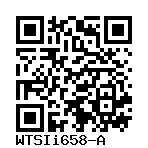HPSI0816i-fuuy_3
WTSIi658-A
General
Cell Line |
|
| hPSCreg name | WTSIi658-A |
| Cite as: | WTSIi658-A (RRID:CVCL_LM39) |
| Alternative name(s) |
HPSI0816i-fuuy_3
|
| Cell line type | Human induced pluripotent stem cell (hiPSC) |
| Similar lines |
UNEWi026-A (SF116 clone 1) Donor's gene variants: CFH Donor diseases: type 2 diabetes mellitus age-related macular degeneration STBCi110-A (SFC116-03-01) Donor's gene variants: CFH Donor diseases: type 2 diabetes mellitus age-related macular degeneration UNEWi026-B (SF116 clone 2) Donor's gene variants: CFH Donor diseases: type 2 diabetes mellitus age-related macular degeneration UNEWi026-C (SF116 clone K) Donor's gene variants: CFH Donor diseases: type 2 diabetes mellitus age-related macular degeneration UKBi003-A (iLB-MJD1-32m-r9, LB-32-r9) Donor's gene variants: ATXN3, ATXN3 Donor diseases: Machado-Joseph disease UKBi008-A (iLB-MJD4-34m-r1, LB-34-1) Donor's gene variants: ATXN3, ATXN3 Donor diseases: Machado-Joseph disease |
| Last update | 22nd May 2019 |
| User feedback | |
Provider |
|
| Generator | Wellcome Sanger Institute (WTSI) |
External Databases |
|
| HipSci | HPSI0816i-fuuy_3 |
| BioSamples | SAMEA104236472 |
| Cellosaurus | CVCL_LM39 |
| Wikidata | Q54891429 |
General Information |
|
| Projects | |
| * Is the cell line readily obtainable for third parties? |
Yes Research use: allowed
Clinical use: not allowed
Commercial use: not allowed
|
Donor Information
General Donor Information |
|
| Sex | male |
| Age of donor (at collection) | 60-64 |
| Ethnicity | Caucasian |
Phenotype and Disease related information (Donor) |
|
| Diseases | A disease was diagnosed.
|
External Databases (Donor) |
|
| BioSamples | SAMEA7748668 |
Ethics
| Has informed consent been obtained from the donor of the embryo/tissue from which the pluripotent stem cells have been derived? | Yes |
| Was the consent voluntarily given? | Yes |
| Has the donor been informed that participation will not directly influence their personal treatment? | Yes |
| Can you provide us with a copy of the Donor Information Sheet provided to the donor? | No |
| Do you (Depositor/Provider) hold the original Donor Consent Form? | No |
| If you do not hold the Donor Consent Form, do you know who does? | No |
| Alternatives to consent | |
| Alternative consent approval number | |
| Is there other documentation provided to the donor for consenting purposes? | No |
| Please indicate whether the data associated with the donated material has been pseudonymised or anonymised. | anonymised |
| Does consent explicitly allow the derivation of pluripotent stem cells? | Yes |
| * Does consent expressly prevent the derivation of pluripotent stem cells? | No |
| Details on restriction to research project | |
| Does consent prevent CELLS DERIVED FROM THE DONATED BIOSAMPLE from being made available to researchers anywhere in the world? | No |
| How may genetic information associated with the cell line be accessed? | |
| Will the donor expect to receive financial benefit, beyond reasonable expenses, in return for donating the biosample? | No |
| Please describe how access is provided: | |
| Contact data, institution, or website: | |
| Has a favourable opinion been obtained from a research ethics committee, or other ethics review panel, in relation to the Research Protocol including the consent provisions? | No |
| Name of accrediting authority involved? | |
| Approval number | |
| Has a favourable opinion been obtained from a research ethics committee, or other ethics review panel, in relation to the PROPOSED PROJECT, involving use of donated embryo/tissue or derived cells? | No |
| Name of accrediting authority involved? | |
| Approval number | |
| Please describe: | |
| Further constraints on use | |
| For generation of the cell line, who was the supplier of any recombined DNA vectors or commercial kits used? | |
| Constraints for use or distribution |
hIPSC Derivation
General |
|
| Source cell type |
A connective tissue cell which secretes an extracellular matrix rich in collagen and other macromolecules. Flattened and irregular in outline with branching processes; appear fusiform or spindle-shaped.; These cells may be vimentin-positive, fibronectin-positive, fsp1-positive, MMP-1-positive, collagen I-positive, collagen III-positive, and alpha-SMA-negative.
|
| Source cell origin |
Any portion of the organ that covers that body and consists of a layer of epidermis and a layer of dermis.
Synonyms
|
| Age of donor (at collection) | 60-64 |
| Source cell line vendor | University College London |
Reprogramming method |
|
| Vector type | Non-integrating |
| Vector | Sendai virus |
| Notes on reprogramming vector detection | CytoTune 2 |
Vector free reprogramming |
|
Other |
|
| Derived under xeno-free conditions |
Unknown |
| Derived under GMP? |
Unknown |
| Available as clinical grade? |
Unknown |
Culture Conditions
| Surface coating | Vitronectin |
| Feeder cells |
No |
| Passage method |
Enzyme-free cell dissociation
EDTA
|
| CO2 Concentration | 5 % |
| Medium |
TeSR™ E8™
|
Characterisation
Analysis of Undifferentiated Cells
| Pluripotency Score | Novelty Score | |
| 26.519 | 1.292 |
Report
HPSI-fuuy.pluritest.pluripotency_score.20170926.png
pluripotency image
HPSI-fuuy.pluritest.novelty_score.20170926.png
novelty image
Certificate of Analysis |
|
| Is there a certificate of analysis available? |
Yes
|
Genotyping
Karyotyping (Cell Line) |
|
| Has the cell line karyotype been analysed? |
No
|
Other Genotyping (Cell Line) |
|
| Is there genome-wide genotyping or functional data available? |
Yes
cnv
http://www.hipsci.org/lines/#/lines/HPSI0816i-fuuy_3 Number of regions different from primary tissue: 0; Length of differences from primary tissue: 0 |


Login to share your feedback, experiences or results with the research community.